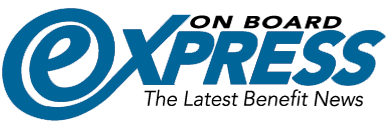
Vol. XIX, Issue 17
April 8, 2020
CARES Act Update—April 8, 2020
Wespath continues to analyze the Coronavirus Aid, Relief, and Economic Security Act (CARES Act) to provide information to churches, annual conferences, and clergy and lay employees of The United Methodist Church. The following information expands on preliminary information in the April 3, 2020 On Board Express.
For Individuals
CARES Act Participant Retirement Plan FAQs
Wespath has provided a preliminary summary and Q&A about CARES Act provisions related to retirement plan distributions and loans for participants and beneficiaries. The Q&A is here.
For Churches and UMC Organizations
PPP Loan Application Tool for UMC Local Churches
Wespath's Legal Department partnered with the General Council on Finance and Administration (GCFA) Legal Department to create a tool for United Methodist Church local churches to use in completing loan applications for the Paycheck Protection Program (PPP) under the CARES Act. The Loan Application Guidance tool is here.
Small Business Administration (SBA) Guidance for Faith-Based Organizations
On Friday, April 3, 2020, the SBA issued clarification, in the form of frequently asked questions, that religious organizations, including churches, are eligible for Paycheck Protection Program (PPP) loans under the CARES Act.
Key clarifications in the SBA's FAQ include:
- Churches are eligible for PPP loans: Faith-based organizations are eligible to receive SBA loans regardless of whether they provide secular social services. An organization will not be disqualified from receiving a loan because of the religious nature, religious identity, or religious speech of the organization. Wespath has heard that some SBA PPP lenders (e.g., local banks) are still unclear about the eligibility of churches and church-affiliated nonprofit organizations. The SBA's FAQ document should clarify this uncertainty for lenders. However, some lenders may restrict access to loans for other reasons, such as to prioritize their existing customers.
- No faith-based limitation on use of PPP loans: The limitations that apply to all recipients of these loans (such as that loan forgiveness will cover non-payroll costs only to a maximum of 25% of the total loan to a recipient) apply to faith-based loan recipients. No additional limitations apply. For example, the requirement to use loan funds only for secular services, which is the case for Economic Injury Disaster Loans (under another SBA program), does not apply for PPP loans.
- Churches qualify as 501(c)(3) organizations: Local churches meet the requirements of Tax Code §501(c)(3) without having applied for a ruling in such status from the Internal Revenue Service. Churches (including temples, mosques, synagogues and other houses of worship), integrated auxiliaries of churches, and conventions or associations of churches (such as denominations, annual conferences, dioceses, and the like) can qualify for PPP loans as long as they meet the requirements of Tax Code §501(c)(3) and all other applicable PPP requirements. These organizations are not required to apply to the IRS to receive tax-exempt status. It may help to have a copy of a local church's letter indicating inclusion in the UMC's group tax-exempt ruling from GCFA. But even that should not be necessary based on the FAQ.
- Faith-based organization affiliation: Some local churches may be affiliated with a daycare center or on-site or closely related social services ministry. Others may have an affiliated foundation. In the case of UMC annual conferences, the conference may be affiliated with a foundation, district offices, conference agencies, summer camps, and even possibly colleges, older adult facilities, children's homes and health care organizations. Under the SBA rules, some faith-based organizations likely would qualify as "affiliated" with other church-related entities. Organizations that are "affiliated with each other" under the SBA's rules must add up their employee numbers in determining whether they have 500 or fewer employees.
Generally, if the local church or annual conference has day-to-day control or influence over an affiliated organization (for non-religious reasons, such as administrative convenience and common management), then the two organizations would add up their employees under the affiliation rules. However, if the local church or annual conference is associated with another organization for theological and connectional reasons (e.g., reflecting a historical relationship, shared mission, or to preserve ecclesiastical oversight of the organization), the local church or annual conference would not have to include the employees of the affiliated organization under the PPP. The SBA and participating lenders will not independently assess the reasonableness of a good-faith determination that this exception applies to the local church or conference.
Future SBA PPP Loans
Anecdotally, we are hearing that local and community banks have greater interest in servicing the SBA PPP loans than larger nationwide banks.
In addition, and importantly because of the high demand for these loans, it appears that there may be consideration in Congress for substantial additional funding for this emergency loan program. On April 7, Senate Majority Leader McConnell (R-KY) announced that he would "work with Treasury Secretary Mnuchin and Senate Minority Leader Schumer (D-NY) in hopes to approve further funding for the Paycheck Protection Program by unanimous consent or voice vote during the next scheduled Senate session."
Wespath continues to analyze the CARES Act and its potential impact on UMC annual conferences, local churches, and clergy/lay employees. If you have questions about the CARES Act, please send them to Tony Prestipino, Andy Hendren, Steve Clark or Jim O'Connell.
Additional resources are available on Wespath's COVID-19 webpage.
Copyright © Wespath Benefits and Investments,
a general agency of The United Methodist Church
Share your
suggestions and comments about On Board
Express
